India sowing seeds of discord between Pakistan, Bangladesh
India followed a multi-prong grand strategy to dismember Pakistan in 1971
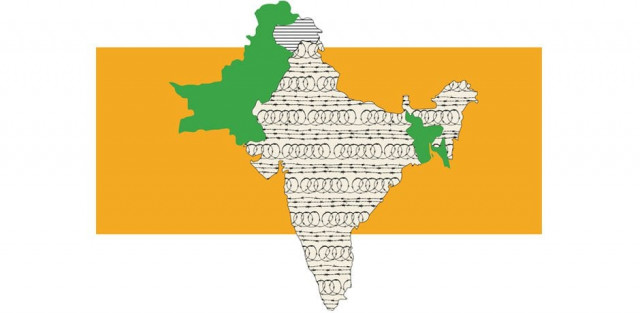
The history is replete with literature on India’s role in the dismemberment of Pakistan, and its recent engagements with Bangladesh showed that it was using every opportunity to divide the people of Bangladesh and Pakistan.
Indian media has widely reported that India was using golden jubilee celebrations in Bangladesh to create a chasm between the two Muslim countries – Pakistan and Bangladesh.
For the first time, a tri-service contingent of 122 members from the Indian armed forces will participate at the Victory Day Parade in Dhaka. Indian President Ram Nath Kovind will also be participating in the grand celebrations of victory day.
The one-year-long celebrations kicked off in 2020 after Indian Prime Minister Narendra Modi attended India and Bangladesh virtual leaders’ summit on December 17, 2020 where he announced that India would be celebrating a “golden victory year” in the run-up to Bangladesh’s 50th Victory Day “during which many events will be organised across India.”
Read more: Experience the truth in Javed Jabbar’s 'Separation of East Pakistan': The Untold Story
Modi visited Dhaka to celebrate the 50th Independence Day as well as the birth centenary of the country’s founding father killed by Mukti Bahini on August 15, 1975, just after three years of independence.
Modi also met the country’s Mukti Bahini Force, the brainchild of RAW, and sent a strong message of Indian involvement in a sustained plan to dismember erstwhile East Pakistan.
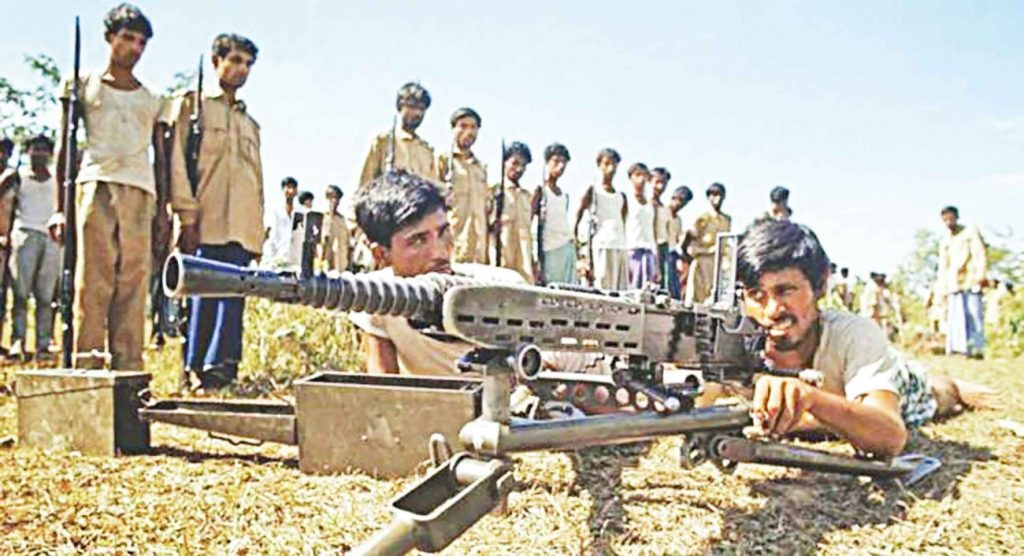
Indian involvement in the creation of Bangladesh can also be confirmed with the admission of Modi who while addressing Bangladesh’s 50th Independence anniversary at the National Parade Square recalled the role played by the Indian army in the war.
Brig R P Singh, VSM (retd) in a detailed write up in Daily Star of Bangladesh gave details of how the Indian Army trained the Bengali youth to fight against Pakistan and how the Indian army was responsible for “training, equipping, and providing, logistical support to Mukti Bahini".
The non-acceptance of Pakistan as a separate state can be traced back to Indian founding fathers that grudgingly agreed to the partition in 1947, believing that Pakistan would not survive after independence and projected its economic collapse.
No one epitomised the contradictions in the Congress more strikingly than its leader Mahatma Gandhi. He agreed that the partition of India was "inevitable" but declared, "So long as I am alive, I will never agree to the partition of India".
This ideology followed by Jawaharlal Nehru and her daughter Indira Gandhi was sufficient to prove India’s full-scale involvement in the separation of East Pakistan in 1971.
Also read: Revisiting November 1971 of United Pakistan
A few days after the turmoil that began with the declaration of Independence by the Mukti Bahini, Indian PM Indira Gandhi moved a resolution in Parliament against Pakistan.
On April 3, 1971, she met with Tajuddin Ahmed, Mujib’s nominee for PM of the provisional government, and promised support, including an office in Calcutta that belonged to the RAW intelligence agency.
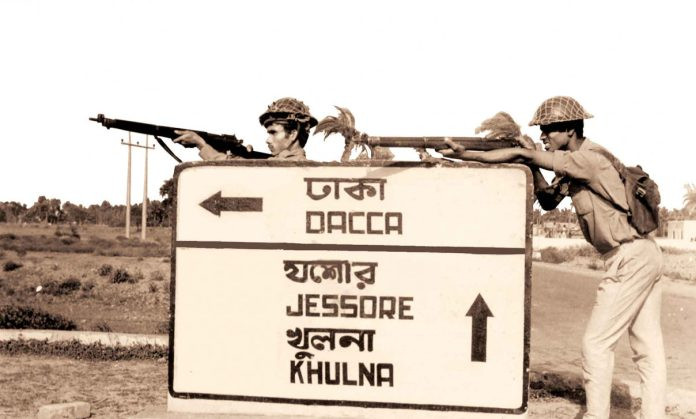
The Indian government issued a memo of support that led to the dismemberment of Pakistan.
Indira Gandhi openly made concerted efforts to get international support against Pakistan. She was quite successful in her efforts as the Soviet Union extended all-out military and diplomatic assistance to India and on the other hand the US, despite Pakistan’s closest ally, remained complacent.
Indira Gandhi used complete state machinery and resources to manifest her plan and facts stated in the different accounts of the events in the books, inquiry reports and witnesses substantiate that the Indian state-initiated all-out covert and overt operations to dismember East Pakistan.
Her open support is also found in the statement she made after the East Pakistan debacle with these arrogant words, “We have taken the revenge of a thousand years” and “we have drowned the two-nation theory in the Bay of Bengal”.
Likewise, Rahul Gandhi, in his election campaign of 2007, proudly remarked, “You know, when Nehru family commits to a task, it also completes it. In the past too, members of the Gandhi family have achieved the goals they have initiated like the freedom of the country, dividing Pakistan into two.”
It is a known fact that Indians were instrumental in the dismemberment of Pakistan and these remarks are only a glimpse of the confessions made by the Indian leadership.
The role of RAW — which was formed in 1968 to initiate a covert operation for Pakistan’s dismemberment — cannot be denied. Two priority tasks given to the RAW included strengthening its capability for the collection of intelligence about Pakistan and China and for covert actions in East Pakistan.
According to B Raman, former head of the RAW, operations of the wing included the provision of intelligence to the policymakers and the armed forces and train anti-Pakistan elements in clandestine training camps.
The blunt confession made by B Raman clearly demonstrates the level of involvement of India in the dismemberment of Pakistan. India followed a multi-prong grand strategy to dismember Pakistan in 1971.
It utilised the political, economic, social, and geographical gap between East and West Pakistan to materialise its ancestral dream of Pakistan’s dismemberment. India engineered the whole process of the creation of Bangladesh. By getting support from the elements working against Pakistan, India succeeded in dismembering Pakistan.
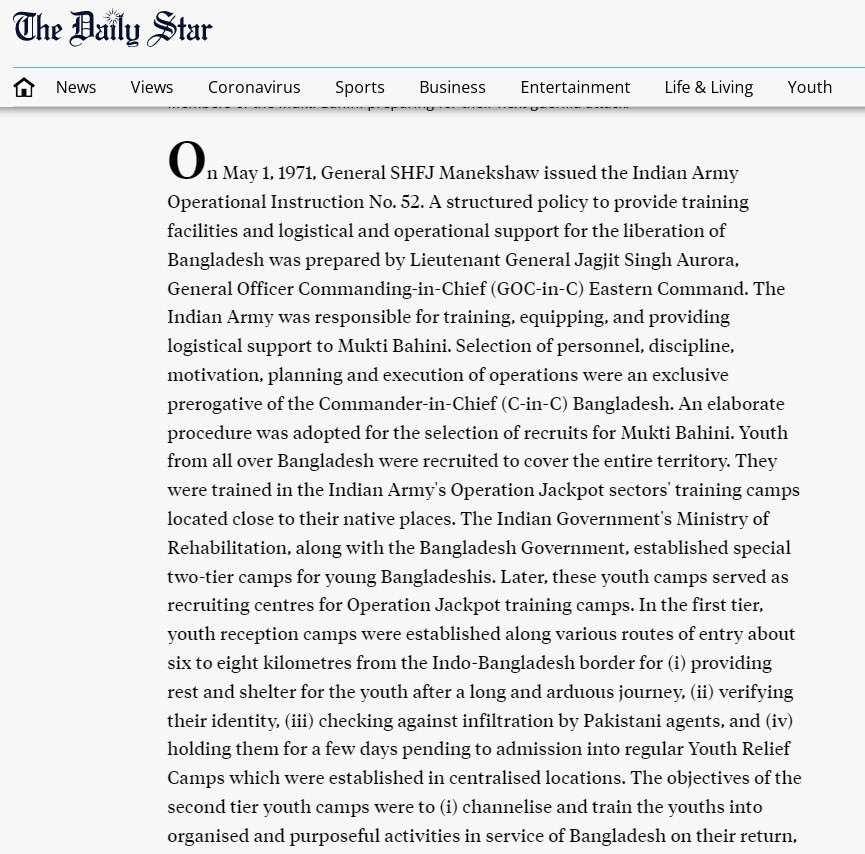
The contemporary policies of expansionist India are identical to its past policies. It is still interfering in the internal affairs of almost all its neighbours. In the case of Pakistan, Balochistan and Karachi remain the main areas susceptible to Indian influence.
The confessions of Indian spy Kulbhushan Jadhav — a serving RAW agent arrested by Pakistani forces in Balochistan on March 24, 2016 — clearly demonstrates the Indian involvement in Pakistan.
He confessed that he was picked up by RAW in 2013 and since then he was directing various activities in Balochistan and Karachi at the behest of RAW and the deteriorating law and order situation in Karachi.
“My purpose was to hold meetings with Baloch insurgents and carry out activities with their collaboration. These activities have been of criminal nature, leading to killing or maiming of Pakistani citizens,” he said while admitting to the fact that Indian policies in Balochistan were identical to those pursued in East Pakistan.
It is high time for the international community to take note of Indian bellicosity against Pakistan which is making all-out efforts to ensure global peace by upholding the laws of the United Nations.
Our brothers in Bangladesh needed to understand the duplicitous acts of Indians who used them in the 1971 debacle and were still trying to sow seeds of hatred against Pakistanis.
The Muslims of British India joined their forces for a separate political entity to protect their political, economic and cultural rights, but it was India which encouraged separatist sentiments among the residents of erstwhile East Pakistan.
People of Pakistan wanted to engage with the citizens of Bangladesh and the love showed by Bengalis for the Pakistan cricket team in the recent series is its true manifestation.


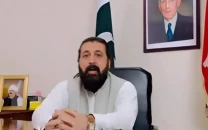
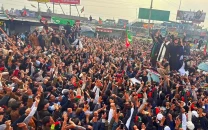

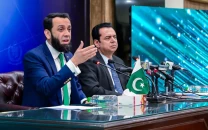
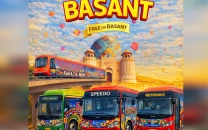












COMMENTS
Comments are moderated and generally will be posted if they are on-topic and not abusive.
For more information, please see our Comments FAQ